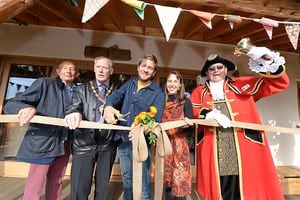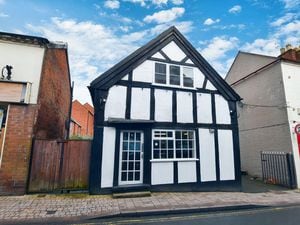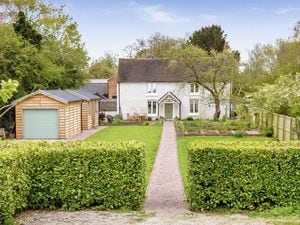Community farm near Market Drayton opens bunkhouse
England's first ever community-owned farm has opened a new base.

It took volunteers more than 1,000 hours to build, but the Bunkhouse at Fordhall Farm, near Market Drayton, is now open to youth clubs, care groups and weddings.
It was built from just a handful of simple materials - straw, wood, sheep's wool, car tyres, clay and lime.
Having gained support from the likes of Alan Titchmarsh and Sting, the stunning venue is set to host its two permanent community projects as well as run a number of educational programmes.
The structure was completed earlier this summer but was officially opened on Saturday by architectural designer and television presenter Charlie Luxton.
Charlotte Hollins manages the farm alongside her brother Ben.
She said: "The bunkhouse is a superb addition to Fordhall Farm, and it completely fits in with our totally organic ethos.
“So many of the materials used for the building would have ended up as waste or landfill, but now they are given a long-lasting purpose. Plus the others, such as the straw and lime have resulted in us storing and locking carbon into the building, thereby helping to drastically reduce our carbon footprint.
“As Fordhall Farm continues to diversify, the bunkhouse offers the perfect platforms for things like green weddings, wellbeing retreats, immersive organic experiences as well as being a base for the community groups who are hosted at the farm. "
Harvesting
There were no cranes in sight during its construction as builders used traditional techniques involving ropes and pulleys to hoist materials into place.
The venue has been built using just five simple materials: straw, wood, sheep’s wool, car tyres, clay and lime.
There are two groups that are permanently based at the farm, a youth project for young people struggling with mainstream school, and a care farm supporting adults with learning difficulties.
Ms Hollins added: "The youth project is a scheme which gives young people who are struggling within a mainstream school setting to learn more hands-on practical skills, such as working with wood and helping with the day-to-day maintenance on the farm.
"The care farm is a group supporting adults with learning difficulties. They get involved in all aspects of our community garden such as growing and harvesting food for the on-site café, composting and even growing some cut flowers."
The structure contains 758 naturally-insulating straw bales in the walls, 138 recycled tyres in the foundations, 13 solar panels on the roof, 20,000 cedar shingles to cover the roof and 26 larch trees which would otherwise have been wasted from the timber industry.
The Bunkhouse was built thanks in part to a successful crowdfunding campaign which raised £56,500 towards the construction and a further £450,000 from grant-giving trusts and other funding organisations, including Power to Change, the National Lottery’s Our Bright Future fund, and the Jean Jackson Charitable Trust.





